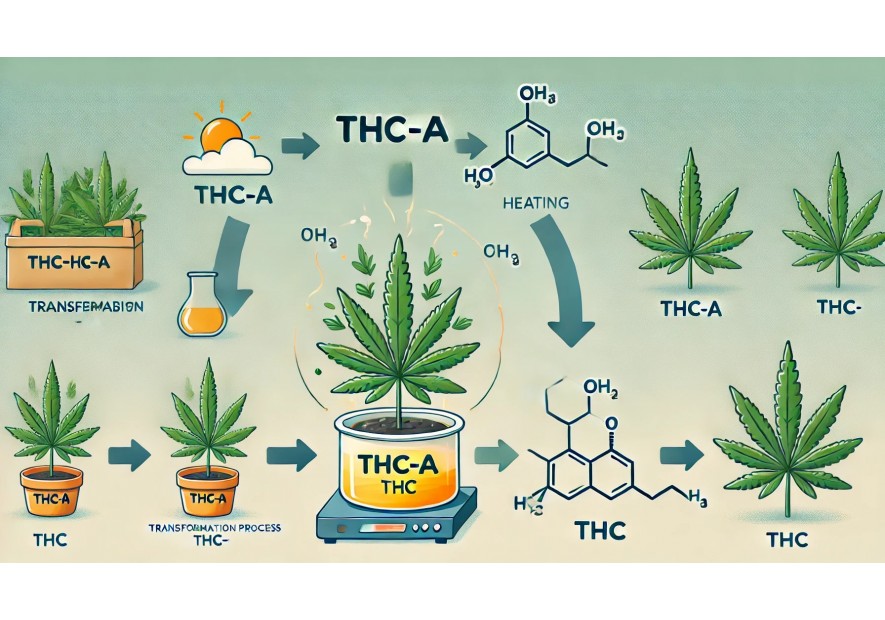THC-A: Origins, Effects, and Legislation

Discovery and Origins of THC-A
THC-A (tetrahydrocannabinolic acid) is a naturally occurring compound in cannabis, representing the preliminary acidic form of THC (tetrahydrocannabinol). THC-A is produced by cannabis plants and, unlike THC, does not have psychoactive effects. It is only through a process called decarboxylation (exposure to heat) that THC-A transforms into THC, which is responsible for the well-known psychoactive effects.
Effects and Uses of THC-A
Although non-psychoactive, THC-A has several beneficial properties. Preliminary research suggests it may have anti-inflammatory, neuroprotective, antiemetic (anti-nausea), and antiproliferative (anti-cancer cell growth) effects. For example, it could be useful in treating arthritis, neurodegenerative diseases, and may help stimulate appetite in patients suffering from nausea.
Manufacturing and Transformation
THC-A is primarily found in fresh cannabis plants. To consume THC-A without converting it to THC, it is common to consume the raw plant, often in the form of juice or smoothies. However, if the plant is heated, as in smoking, cooking, or vaporizing, the THC-A decarboxylates into THC.
Products and Applications
Due to its medicinal properties, THC-A is incorporated into various products. It can be found in transdermal patches, oils, and juices made from fresh plants. These products allow users to benefit from the therapeutic effects of THC-A without the psychoactive effects of THC.
Legislation by Country
The legislation surrounding THC-A varies widely across the world. In the United States, in states where cannabis is legalized, products containing THC-A are available. However, in many European countries, including France, the cultivation, commercialization, and consumption of cannabis rich in THC (and potentially THC-A) are strictly regulated and often prohibited. Nevertheless, CBD products with a THC content of less than 0.3% are generally legal.
Conclusion
THC-A is a cannabinoid with multiple potential benefits, distinct from THC due to its lack of psychoactive effects. Although research on THC-A is still in its early stages, its promising therapeutic applications are attracting attention, especially in regions where cannabis legislation is evolving favorably. For consumers and patients, THC-A offers an interesting alternative to traditional THC-based products.
